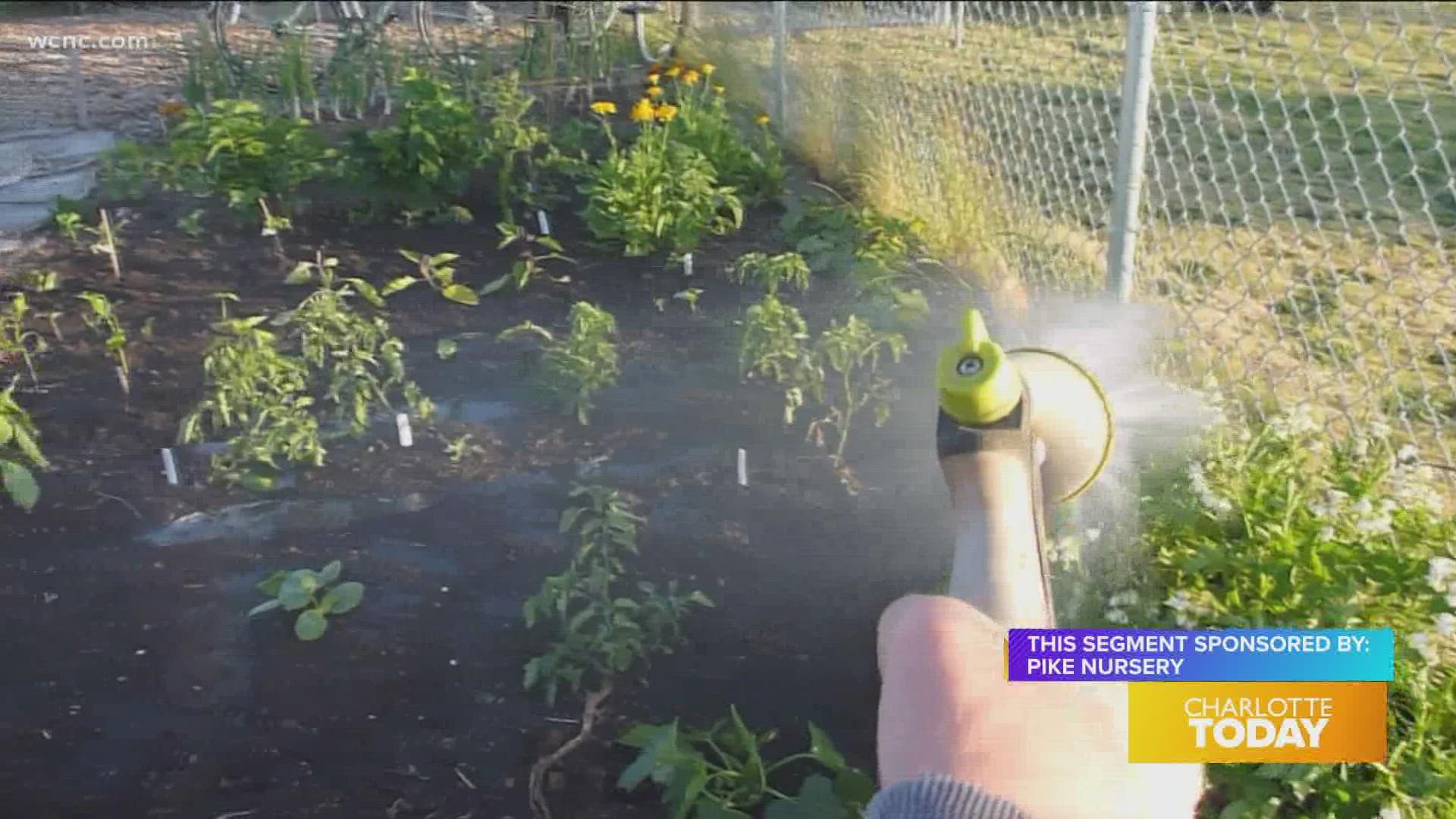CHARLOTTE, N.C. — Sponsored by:
The products and services featured appear as paid advertising.
It’s time to plant your spring veggies! As Earth Day draws near (Friday, April 22nd), Pike Nursery says it's also time to consider some sustainable gardening practices. Billy Carroll from Pike Nursery joined us, to share why we should plant a vegetable garden, and to also show us how to start our sustainable, veggie garden this spring.
Why plant a veggie garden?
- The reasons are endless! Growing veggies like tomatoes, peppers, cucumbers, eggplant and more is fun - plus you get to enjoy the harvest.
- Homegrown produce is also more flavorful and nutritious plus you know exactly where it came from and how it was grown.
- We’ve all seen grocery store prices rising – growing your own veggies will save you money this summer and, in the future, if you can or preserve your harvest.
How to get started?
- The most important item you’ll need is full sun – you need an area in the garden or on your patio that receives 6 or more hours of direct sunlight.
- Next, choose what you love to eat – tomatoes, sweet peppers, hot peppers, cucumbers, zucchini, squash, beans, peas – there so lots of options.
- Have fun with it – plant your favorites and try something new too!
- If you’re close with your neighbors grow different things and then you can share your harvest.
- Gather your supplies.
- If you’re planting in the garden, it’s important to amend the native soil that lacks organic matter & has terrible drainage. You’ll want to amend the native soil at a 50/50 ratio with Pike Tomato & Vegetable Planting Mix – remember, when planting in the ground you always use a planting mix.
- If you’re planting in pots, you’ll want a rich, organic potting soil like our Pike Container and Potting Mix. When selecting a pot be sure it’s the correct size – tomatoes have extensive root systems and most like a pot that’s at least 14 inches wide. Remember, if you’re not sure what size pot would work ask any Pike associate and we can help you out.
- Whether you’re planting in the ground or in a pot you’ll need 100% organic Dr. Earth Root Zone that you’ll add when planting to provide additional nutrients that also help with transplant shock.
- Lastly, if you’re planting tomatoes or peppers, you need a tomato cage. Place the cage over the plant right after you plant it so as it grows it has the support of the cage so the fruit doesn’t touch the ground. It’s also much easier to place the cage on your small starter plant versus a larger, unruly plant
Tips for Veggie Garden Success
Water! – veggies like nice, consistent water; especially tomatoes.
- Be sure to give your veggies a deep water --- you want to water until just before you see run off. This allows the water to penetrate deep into the soil encouraging a deep, healthy root system
- It’s best to water your veggies between 6-9am in the morning. This helps prevent water evaporation during the warm afternoon sun
- Try not to water your veggies or any of your outdoor plants at night. Water sitting on your plants all night can lead to fungus issues
Food – just like you, veggies need food to grow strong & healthy. Most vegetables are heavy eaters and a good, consistent feeding schedule not only will help them produce a larger harvest but can prevent various plant issues.
- Feed your vegetables on a consistent schedule with 100% organic Dr. Earth Homegrown fertilizer. We really like using this 100% organic food since you will be eating the fruit
If you have any questions about planting your spring veggie garden or experience any issues along the way, remember Pike Nursery can help! Their local horticulturalists love helping with garden projects. For more information visit PikeNursery.com.

